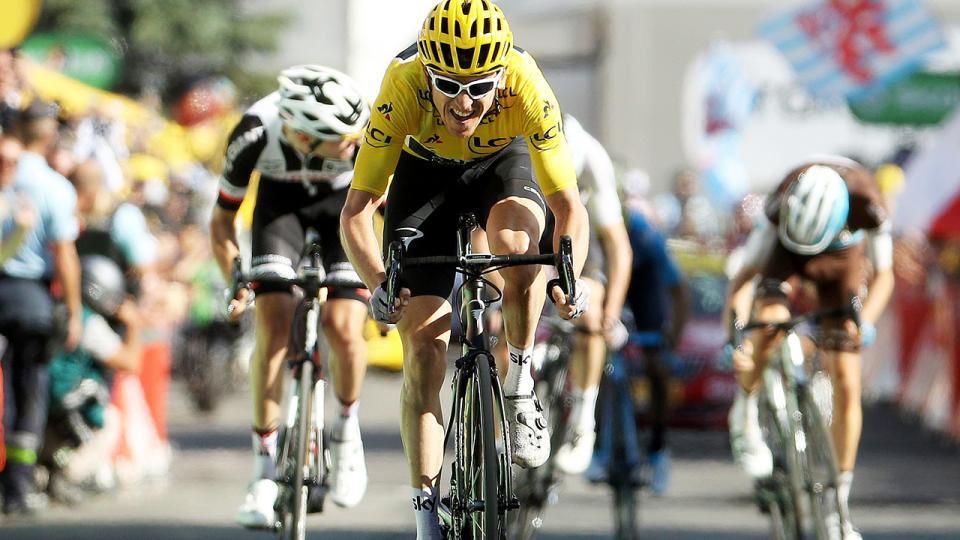'It's impossible': Tour de France postponed in stunning 74-year first

After weeks of holding out hope that the Tour de France would be able to go ahead as planned, the world’s most famous cycling race was finally added to the list of sporting events postponed by the coronavirus pandemic.
The three-week race could still take place this year, however, with French newspapers reporting late Tuesday that a new start date has been set for August.
‘NOT HAPPENING TOMORROW’: NRL boss hits back at ScoMo
'DEEPLY SADDENED': Collingwood rocked by tragic death of young fan
Both L'Equipe and Le Parisien said organisers are now hoping to stage the race from August 29-September 20.
That new time slot would see the race end on Champs-Élysées just as the rescheduled French Open tennis tournament starts a few miles away in western Paris.
Tour organiser Amaury Sport Organisation did not immediately reply to a request for confirmation from The Associated Press.
But local authorities in Haute-Savoie region tweeted that the last of the mountain stages will pass through its rugged and daunting climbs on September 17 on the race’s 18th stage.
The Tour was set to start on June 27 in the Riviera city of Nice.
But that effectively became impossible on Monday night when French President Emmanuel Macron announced in his speech to the nation that all public events with large crowds have been canceled until at least mid-July.
“Given that it’s now impossible that the Tour starts at its planned date, we are consulting with the (International Cycling Union) to try and find new dates,” ASO had said earlier Tuesday.
First Tour postponement in 74 years
The last time the Tour was not held as planned was 1946, with the nation still emerging from World War II. It was also stopped during WWI.
Holding the race without legions of fans on the roadsides and mountain passes of France — an idea previously proposed by French Sports Minister Roxana Mărăcineanu — is not something organisers are likely to favour.
Millions of fans watch each year’s race in a festive atmosphere across many regions. This year’s event has 21 stages, with the longest of them stretching 218 kilometres (135 miles).
Thousands of police officers are needed to keep crowds under control and help negotiate safe passage for riders.

Riders, too, have to be physically ready to tackle the gruelling race — and able to actually attend it. After weeks of confinement, competitors would likely need several more weeks to get into racing shape.
Borders would have to be open, too, so racers like last year's winner — Colombian rider Egan Bernal — can travel to France.
Juggling the cycling calendar is also tricky because of the various races scheduled throughout the season, including the Giro d'Italia and the Spanish Vuelta.
The Giro, which had been set for May, was called off late last month.
The Spanish race, which is also owned by ASO, is still on the schedule for August 14-September 6 but could feasibly be moved forward by a week or two so as not to clash with the Tour.

